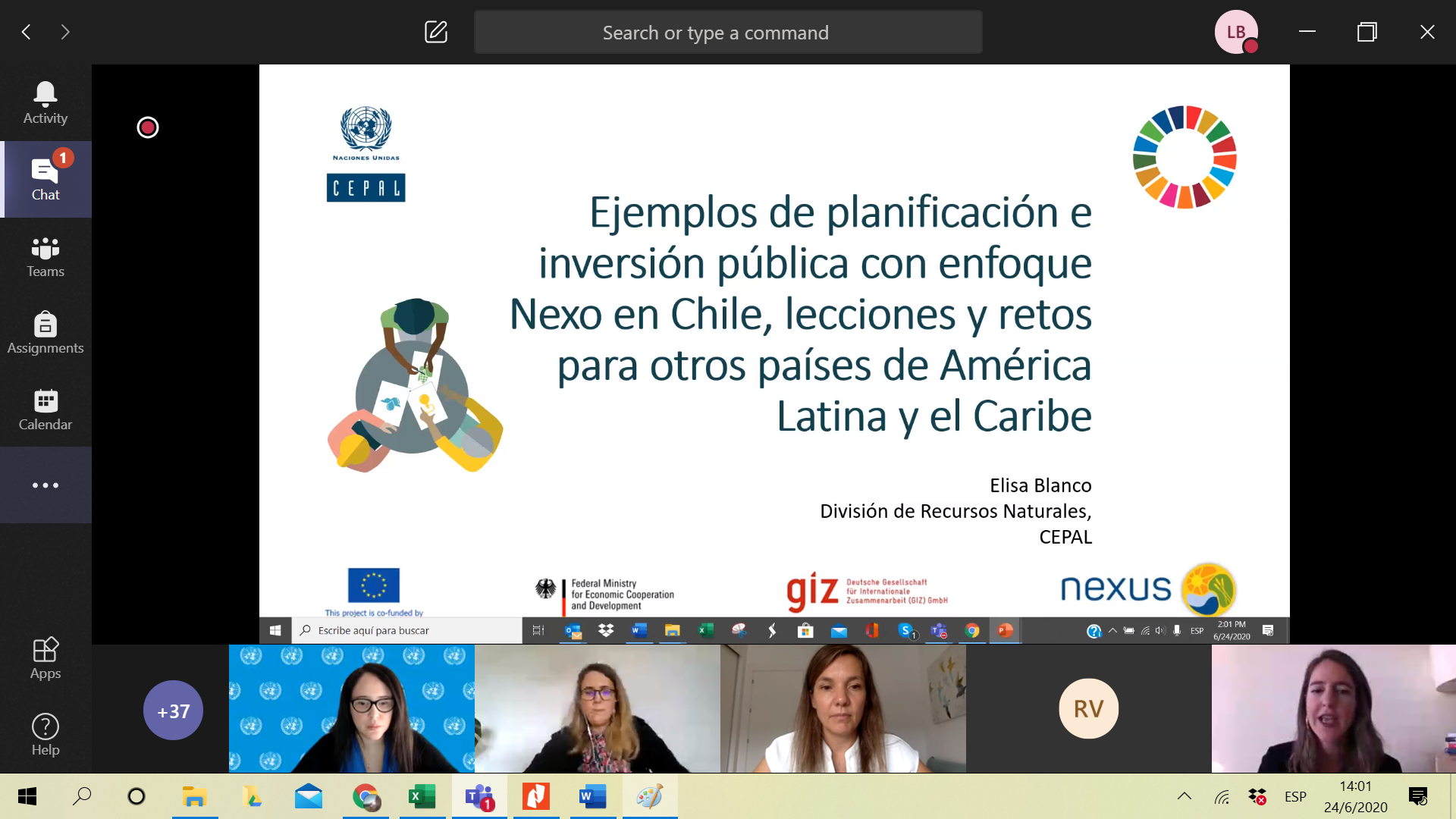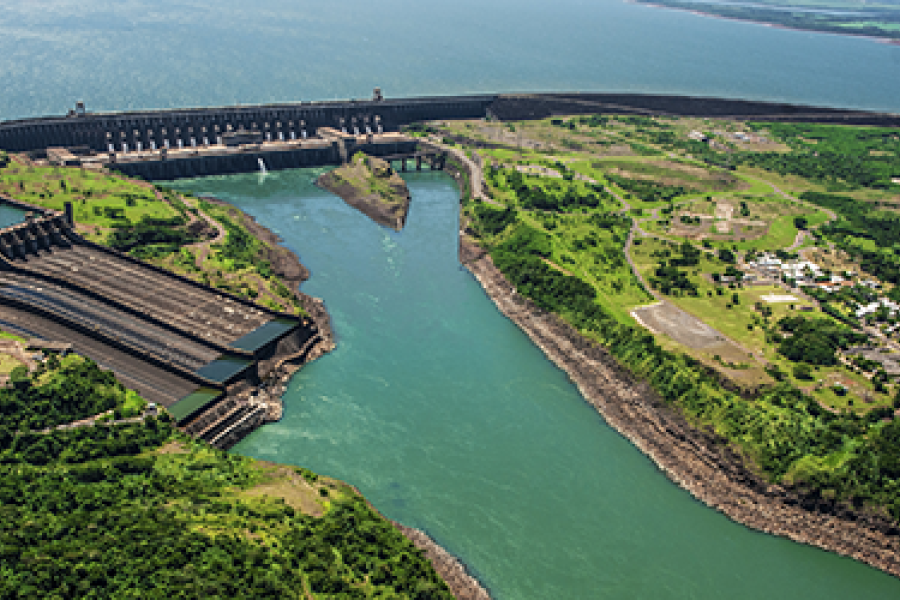Webinar on Public Investment Planning with a Water-Energy-Food (WEF) Nexus Approach
Work area(s)
Teaser
The Natural Resources Division of ECLAC, in collaboration with ILPES and GIZ, presented to the Network of National Public Investment Systems (SNIP) of Latin America and the Caribbean methodological guidelines for the adoption of the Nexus approach in the design of policies, plans and projects in the water, energy and food sectors. In addition, case studies from LAC countries were presented as an example of the practical application of the guidelines.
Event information

Date
24 Jun 2020, 09:00 - 11:00Event type
Participation
On June 24, the webinar “Planning of public investments with a Water-Energy-Food Nexus approach” was carried out. This event was organized for the SNIP Network, where ILPES / ECLAC, IDB and GIZ participate, the event had 54 participants from 9 countries, who had the opportunity to discuss the experiences presented and the potential of applying the Nexus approach in their countries.
In this event, the Water and Energy Unit of the Natural Resources Division of ECLAC launched the "Methodological Guidelines: design of actions with a water-energy-food Nexus approach for Latin American and Caribbean countries", and also presented its practical application with a case study from Chile, which is part of the report" Lessons learnt of the adoption of the Nexus approach in Latin America and the Caribbean ", which compiles more than ten case studies with Lessons learnt and challenges for the adoption of the Nexus approach in the region. Both documents will be published soon.
Francisco Tula, president of the SNIP network, oversaw welcome the event. On the other hand, Jeanette Sánchez, Director of the Division of Natural Resources of ECLAC, presented the session and highlighted the importance of promoting the Nexus approach, taking into account the undeniable interrelationships that exist between the water, energy and food sectors under the context of our region. Antonio Levy, regional coordinator of the Nexus Dialogue in Latin America and the Caribbean, with Silvia Saravia and Marina Gil from the Natural Resources Division moderated the meeting.
The webinar was structured in two main sections. The first section had the intervention of the expert consultants from the Natural Resources Division, Bárbara Willaarts and Elisa Blanco, who presented the methodological tool and its practical application. In the second section, the experiences of Ecuador and Chile in the adoption of actions with a Nexus approach were presented. The interventions in this case, were in charge of the expert Diego Martínez from Ecuador and Andrea Osses, Head of Water Resources Management of the Studies and Planning Division of the Chilean Water Directorate. Finally, a discussion space was opened to answer questions from the audience.
Related project(s)
Organizing institution
Economic Commission for Latin America and the Caribbean (ECLAC)
- https://www.cepal.org
- 56 222100000
Instituto Latinoamericano y del Caribe de Planificación Económica y Social (ILPES), CEPAL
- http://www.cepal.org/ilpes/
- (56-2) 2102507
